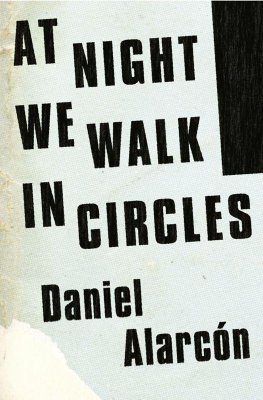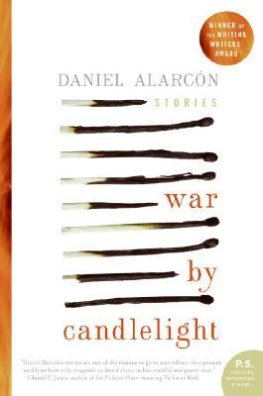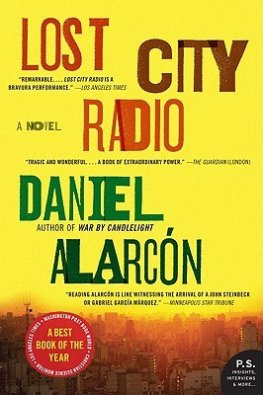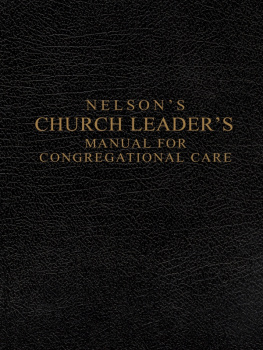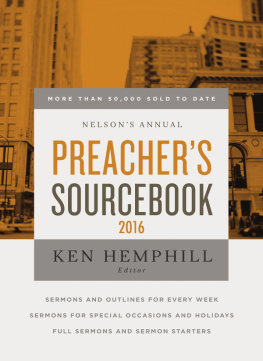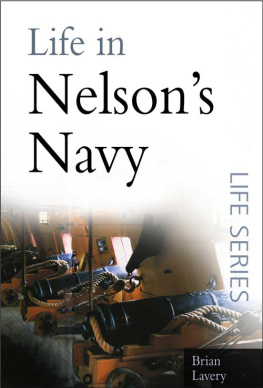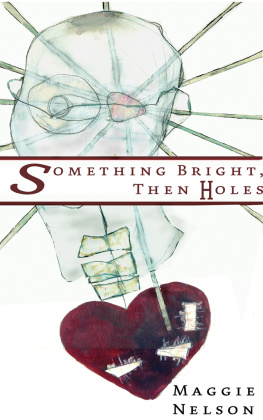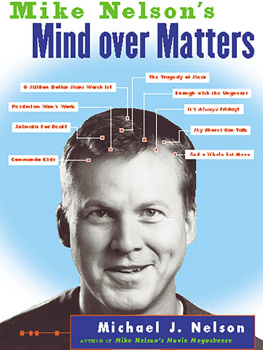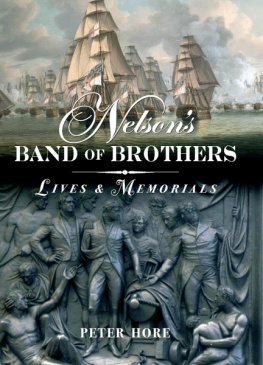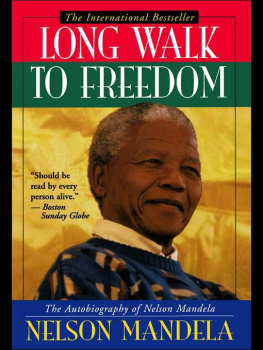Daniel Alarcon
At Night We Walk in Circles
FOR CAROLINA, LEN, AND ELISEO
The spectacles externality with respect to the acting subject is demonstrated by the fact that the individuals own gestures are no longer his own, but rather those of someone else who represents them to him. The spectator feels at home nowhere, for the spectacle is everywhere.
GUY DEBORD, The Society of the Spectacle
BRENGER: [who also stops feeling the invisible walls, greatly surprised] Why, what do you mean?
[The ARCHITECT returns to his files.]
In any case, Im glad my memory is real and I can feel it with my fingers. Im as young as I was a hundred years ago. I can fall in love again [Calling to the wings on the right: ] Mademoiselle, oh, Mademoiselle, will you marry me?
EUGNE IONESCO, The Killer
DURING THE WARwhich Nelsons father called the anxious yearsa few radical students at the Conservatory founded a theater company. They read the French surrealists, and improvised adaptations of Quechua myths; they smoked cheap tobacco, and sang protest songs with vulgar lyrics. They laughed in public as if it were a political act, baring their teeth and frightening children. Their ranks were drawn, broadly speaking, from the following overlapping circles of youth: the longhairs, the working class, the sex-crazed, the poseurs, the provincials, the alcoholics, the emotionally needy, the rabble-rousers, the opportunists, the punks, the hangers-on, and the obsessed. Nelson was just a boy then: moody, thoughtful, growing up in a suburb of the capital with his head bent over a book. He was secretly in love with a slight, brown-haired girl from school, with whom hed exchanged actual words on only a handful of occasions. At night, Nelson imagined the dialogues they would have one day, he and this waifish, perfectly ordinary girl whom he loved. Sometimes he would act these out for his brother, Francisco. Neither had ever been to the theater.
The company, named Diciembre, coalesced around the work of a few strident, though novice, playwrights, and quickly became known for their daring trips into the conflict zone, where they lived out their slogan Theater for the People! at no small risk to the physical safety of the actors. Such was the tenor of the era that while sacrifices of this sort were applauded by certain sectors of the public, many others condemned them, even equated them with terrorism. In 1983, when Nelson was only five, a few of Diciembres members were harassed by police in the town of Beln; a relatively minor affair, which nonetheless made the papers, prelude to a more serious case in Las Velas, where members of the local defense committee briefly held three actors captive, even roughed them up a bit, believing them to be Cuban agents. The trio had adapted a short story by Alejo Carpentier, quite convincingly by all accounts.
Nor were they entirely safe in the city: in early April 1986, after two performances of a piece titled The Idiot President, Diciembres lead actor and playwright was arrested for incitement, and left to languish for the better part of a year at a prison known as Collectors. His name was Henry Nuez, and his freedom was, for a brief time, a cause clbre. Letters were written on his behalf in a handful of foreign countries, by mostly well-meaning people whod never heard of him before and who had no opinion about his work. Somewhere in the archives of one or another of the national radio stations lurks the audio of a jailhouse interview: this serious young man, liberally seasoning his statements with citations of Camus and Ionesco, describing a prison production of The Idiot President, with inmates in the starring roles. Criminals and delinquents have an intuitive understanding of a play about national politics, Henry said in a firm, uncowed voice. Nelson, a month shy of his eighth birthday, chanced to hear this interview. His father, Sebastin, stood at the kitchen counter preparing coffee, with a look of concern.
Dad, young Nelson asked, whats a playwright?
Sebastin thought for a moment. Hed wanted to be a writer when he was his sons age. A storyteller. A playwright is someone who makes up stories.
The boy was intrigued but not satisfied with this definition.
That evening, he brought it up with his brother, Francisco, who responded the way he always did to almost anything Nelson said aloud: with a look of puzzlement and annoyance. As if there were a set of normal things that all younger brothers knew instinctively to do in the presence of their elders but which Nelson had never learned. Francisco fiddled with the radio. Sighed.
Playwrights make up conversation. They call them scripts. That crap you make up about your little fake girlfriend, for example.
Francisco was twelve, an age at which all is forgiven. Eventually he would leave for the United States, but long before his departure, he was already living as if he were gone. As if this family of his mother, father, brother mattered hardly at all. He knew exactly how to end conversations.
No recordings of the aforementioned prison performance of The Idiot President have been found.
By the time of his release, in November of that same year, Henry was much thinner and older. He no longer spoke with that firm voice; in fact, he hardly spoke at all. He gave no interviews. In January, in response to an uprising by inmates, two of the more volatile sections of Collectors were razed, bombed, and burned by the army; and the men whod made up the cast of The Idiot President died in the assault. They were shot in the head or killed by shrapnel; some had the misfortune to be crushed beneath falling concrete walls. In all, three hundred forty-three inmates died, vanished; and though Henry wasnt there, part of him died that day too. The incident garnered international attention, a few letters of protest from European capitals, and then it was forgotten. Henry lost Rogelio, his best friend and cell mate, his lover, though he wouldnt have used that word at the time, not even to himself. He did not take the stage again for nearly fifteen years.
But a troupe must be bigger than a single personality. Diciembre responded to the curfew, the bombings, and the widespread fear with a program of drama-based bacchanals, so drunk on youth and art (according to Henry, a notion echoed by others), they might as well have been living in another universe. Gunshots were deliberately misheard, interpreted as celebratory fireworks, and used as a pretext to praise the local joie de vivre; blackouts put them in the mood for romance. In its glory days at the end of the 1980s, Diciembre felt less like a theater collective and more like a movement: they staged marathon, all-night shows in the newly abandoned buildings and warehouses at the edges of the Old City. When there was no electricity which was often they rigged up lights from car batteries, or set candles about the stage; barring that, they performed in the dark, the spectral voices of the actors emerging from the limitless black. They became known for their pop reworkings of Garca Lorca, their stentorian readings of Brazilian soap opera scripts, their poetry nights that mocked the very idea of poetry. They celebrated on principle anything that kept audiences awake and laughing through what might have otherwise been the long, lonely hours of curfew. These shows were mythologized by theater students of Nelsons generation; and, if one searched (as Nelson had) through the stands of used books and magazines clogging the side streets of the Old City, it was possible to find mimeographed copies of Diciembres programs, wrinkled and faded but bearing that unmistakable whiff of history, the kind one wishes to have been a part of.

